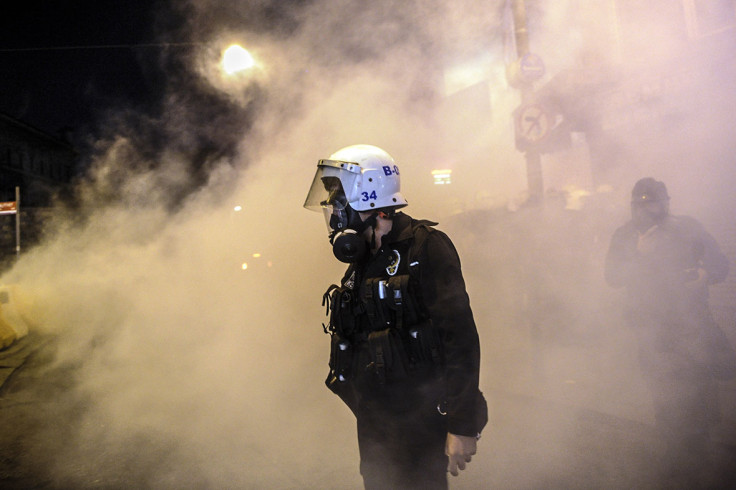Isis Syria News: Erdogan Accuses Kurdish Protesters of 'Sabotage'

Turkish president Recep Tayyip Erdogan has rekindled anti-Kurdish rhetoric following violent protests in the southeast of the country against the perceived government's inaction over the Kobani crisis in Syria by claiming that Kurdish protesters want to "sabotage" the historical peace process with the Kurdistan Workers' Party (PKK).
In his first public comment on the unrest that killed at least 27 people across the Kurdish-majority part of the country, Erdogan said the game is "aimed at sabotaging the peaceful environment in the east and southeast as well as the peace process and our brotherhood".
Riots that exploded in the streets were the worst of its kind for years, with police using pepper spray and water cannon to sedate angry Kurds who were throwing stones and Molotov cocktails at them. They are upset at the Turkish government's failure to intervene against the Islamic State (also known as Isis) whose advance on the Syrian Kurdish town of Kobani have raised fears of massacres of civilians.
The Sunni militants' offensive on northern Syria has already caused 150,000 Syrian Kurds to flee to Turkey, heaping pressure on the NATO member to intervene. But the standoff over Kobani could also endanger and ultimately destroy a fragile peace process with the PKK that began in 2012 by initiative of Erdogan with the purpose to end a 30-year-old insurgency by militants demanding greater autonomy and Kurdish rights. The PKK is listed as a terrorist organisation by the EU and the US.
The Kurdish independence conflict killed 40,000 people, mostly Kurds. Last week, the jailed leader of the PKK Abdullah Ocalan, who is serving a life sentence on the Imrali prison island, said in a statement that the peace process will be over if Isis take over Kobani. "I urge everyone in Turkey who does not want the process and the democracy voyage to collapse to take responsibility in Kobani," Ocalan said. Earlier, the spiritual leader of all Kurds called on the Kurdish people to begin "all-out resistance against this high-intensity war".
Turkey has been reluctant to join US-led coalition against IS despite the ally's insistence. Its main concern was linked to the possibility of Turkish and Syrian Kurds fighting together against IS, laying out the foundation of a future independent state. Turkish leaders have proposed a border buffer zone to include ground troops and a no-fly zone over the border area, but those suggestions have been met coldly by Kurds and Americans.
© Copyright IBTimes 2024. All rights reserved.









